National
Alexandra Mendès becomes first Liberal MP to publicly call on Trudeau to resign
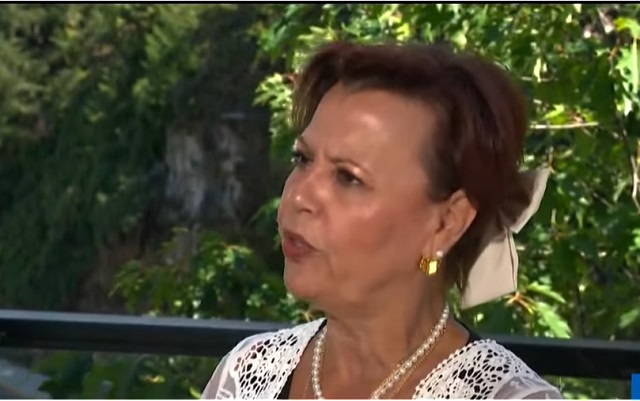
From LifeSiteNews
The House of Commons assistant deputy speaker said he has heard from multiple constituents that the current prime minister is no longer the right man for the job.
A Liberal MP who serves as the assistant deputy speaker of the House of Commons has become the first in the party to publicly call for Prime Minister Justin Trudeau to resign, saying directly that he is not the “right leader” for the party.
The call for Trudeau to step down came from Liberal MP Alexandra Mendès, who is from Quebec’s Brossard-St. Lambert riding. In an interview with Radio Canada on Monday, Mendès said directly, “My constituents do not see Mr. Trudeau as the person who should carry the Party into the next election and that’s the message that I carry.”
“I didn’t hear from two, three people. I heard it from dozens and dozens of people. He is no longer the right leader,” she said.
Mendès said that as she listens to her constituents, which is what “supposedly what we’re meant to do,” then “yes, I have to say we would have to change leadership.”
The Trudeau resignation call comes amid dismal polling numbers for Trudeau as well as losing support from the socialist New Democratic Party (NDP) to keep him in power. NDP leader Jagmeet Singh pulled his official support for Trudeau’s Liberals last week.
Late last month, Conservative Party leader Pierre Poilievre called on Singh to pull his support for Trudeau’s Liberals in order for an election to be held.
Recent polls show that the Conservatives under Poilievre would win a majority government in a landslide were an election held today. Singh’s NDP and Trudeau’s Liberals would lose a massive number of seats.
As for Trudeau, his woes continue to mount. LifeSiteNews recently reported how the national elections campaign director for Canada’s federal Liberal Party announced he was stepping down because, according to sources close to the party, he does not think Trudeau can with a fourth consecutive election.
Alberta
The Conventional Energy Sector and Pipelines Will Feature Prominently in Alberta’s Referendum Debate
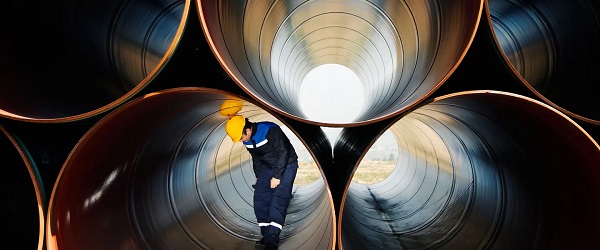
From Energy Now
By Jim Warren
Like it or not, the supporters of conventional energy production in the West, even those who bleed maple syrup, will be best served by a substantial leave vote. A poor showing on the part of the leave camp would weaken the bargaining power of the producing provinces and the conventional energy sector in their dealings with Ottawa.
The political dust-up between the leavers and the stayers is about to commence.
The petition calling for an Alberta referendum on separation will get the required signatures. And, the Moe government in Saskatchewan may yet decide to do something similar.
And, there is a good chance the federal Liberals and their allies in the environmental movement will launch an anti-separation/anti-oil campaign in response. The Liberals need merely to reinvigorate the flag waving campaign they ran during the federal election. All that needs to change for that tactic to work is the name of the boogeyman—from Donald Trump to alienated Westerners. Government subsidized environmental organizations will help do the rest.
This will present something of a dilemma for some supporters of the conventional energy and pipeline sectors. Should they lay low, stay quiet and perhaps avoid becoming part of the controversy? Alternatively, should they face reality and admit oil and pipelines will feature prominently in the debate whether they like it or not. The federal assault on oil, gas and pipelines is after all one of the principal motivations inspiring many who wish to separate.
And, whether we like it or not, the supporters of conventional energy production in the West, even those who bleed maple syrup, will be best served by a substantial leave vote. A poor showing on the part of the leave camp would weaken the bargaining power of the producing provinces and the conventional energy sector in their dealings with Ottawa. This is one of the immutable laws of the negotiating universe. A union that gets only 20% of its members voting in favour of strike action knows it is impotent should management call its bluff.
This is not to say the leave side will need a majority vote to produce a win for the energy sector—a large minority could do nicely. The Parti Québécois’ goal of “sovereignty association” in the 1980 Quebec referendum was supported by just 40.4% of those who voted. Yet, it nevertheless added leverage to Quebec’s extortionate demands on Ottawa and the rest of Canada. Although, after the separatists garnered 49.4% of the vote in the 1995 referendum (aka Canada’s near death experience), Quebec did even better.
True, the two producing provinces on the prairies lack the electoral power of Quebec. In combination with Ontario, Quebec has been integral to Liberal success in federal elections for decades. The power of the West lies in its ability to generate a large share of Canada’s export revenues. That’s mainly why Quebec is able to count on $14 billion in annual equalization welfare. Threatening separation turns the economic importance of the West into a political weapon.
We can expect a highly divisive referendum debate–potentially far more fractious than the federal election campaign. Signals coming out of Ottawa suggest federal-provincial negotiations over conventional energy and emissions policy are about to take a nasty turn. We could be facing a perfect storm of disunity with Westerners bashing Ottawa while Ottawa denounces separatists and resumes its assault on oil, gas and pipelines.
Chances for lowering the political temperature don’t look good. The prime minister has been distancing himself from his initial pre-election pro pipeline position. Early in the election campaign Mark Carney said he would employ the emergency powers of the federal government to get new export pipelines running from the prairies to tidewater. The next week he told reporters Quebec would have the power to veto the approval of any pipeline crossing its territory. On May 14, Carney presented reporters with a word salad that seemed to be saying he would include evaluation of the potential for new pipelines along with other energy policy ideas being discussed. And, if a consensus favouring pipelines emerged, one might be built.
This is not comforting. These statements cannot all be correct at the same time. At least two, if not all three, of them, are disingenuous.
Exactly who will be included in the consensus building discussions is unclear. Will they involve meetings with the premiers of the provinces that generate huge export revenues for Canada. Will they be restricted to the emissions reduction zealots who dominate the cabinet and the Liberal caucus? Or, is it something Carney will work out at Davos when the World Economic Forum next convenes?
The Liberals and their media allies put a lot of stock in the polls once they showed the Liberals in the lead during the election campaign. They briefly acknowledged election period polling that showed 74% of Canadians support the construction of new export pipeline including 60% of Quebecers. But reporting on the growing popularity of pipelines ended after about a week when Carney’s unqualified support for a pipeline to the Atlantic coast evaporated.
Furthermore, the popular vote totals from the federal election demonstrate that Canadians’ support for the Conservatives and the Liberals was divided fairly evenly, 41.3% for the Conservatives and 43.8% for the Liberals. A slim 2.5 percentage point spread. It seems reasonable to assume many Conservative supporters outside of the prairies shared Pierre Poilievre’s strong and consistent support for conventional energy production and pipelines. The fact people in the producing provinces are not alone in seeing the wisdom of new export pipelines strengthens our position.
If the thumping the voters of Alberta and Saskatchewan gave the Liberals in the April 28 election didn’t convince the government its energy and pipelines policies have caused a national unity crisis, maybe a high vote in favour of separation will. Many people will figure this out and will vote strategically to ensure the leave side wins a respectable portion of the vote. Who would want to try to negotiate a good deal for the producing provinces and the conventional energy sector following a weak performance by the leave camp? The Liberals will claim that a big win for the stay camp shows that Albertans are happy with the status quo.
The anti-pipeline misinformation campaign is already underway. Steven Guilbeault was already at it last week. According to Guilbeault, since the Trans Mountain pipeline is not operating at full capacity we obviously don’t need any more pipelines.
Guilbeault knows full well the pipeline is running under full capacity. The reason being the residual fall-out from the $38 billion in cost overruns the government chalked up, which was in turn due to its own regulatory morass and system pains associated with issues like the poor design features built into the Burnaby terminal. The government expects oil producers to pay exorbitant shipping rates designed to rapidly recoup the embarrassing cost overruns. Producers are not prepared to lose money bailing out the government. Guilbeault also knows most producers making use of the Trans Mountain today had negotiated much lower rates with the pipeline prior to its completion.
We can expect the flow of this kind of misinformation to become a gusher in the days ahead.
One hopes there will be adults in charge of both the leave and stay camps. The cause of Western separation can be expected to attract enthusiasts from the fringes of the political spectrum. There will be crackpots and mean-spirited people cheering for both sides. Unfortunately, we need to prepare for the fact the mainstream media will focus on any loosely hinged eccentrics they can find who support separation. Radical environmentalists and climate change alarmists will be treated like selfless planet saving prophets.
Business
Pension and Severance Estimate for 110 MP’s Who Resigned or Were Defeated in 2025 Federal Election
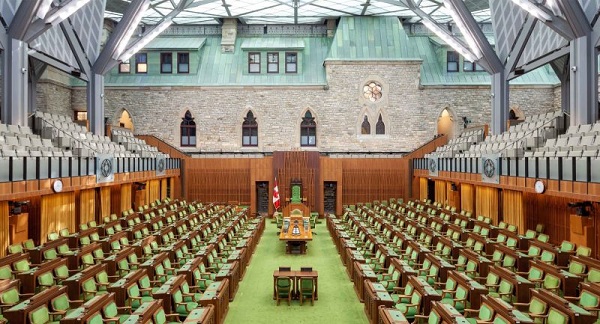
 By Franco Terrazzano
By Franco Terrazzano
Taxpayers Federation releases pension and severance figures for 2025 federal election
The Canadian Taxpayers Federation released its calculations of estimated pension and severance payments paid to the 110 members of Parliament who were either defeated in the federal election or did not seek re-election.
“Taxpayers shouldn’t feel too bad for the politicians who lost the election because they’ll be cashing big severance or pension cheques,” said Franco Terrazzano, CTF Federal Director. “Thanks to past pension reforms, taxpayers will not have to shoulder as much of the burden as they used to. But there’s more work to do to make politician pay affordable for taxpayers.”
Defeated or retiring MPs will collect about $5 million in annual pension payments, reaching a cumulative total of about $187 million by age 90. In addition, about $6.6 million in severance cheques will be issued to some former MPs.
Former prime minister Justin Trudeau will collect two taxpayer-funded pensions in retirement. Combined, those pensions total $8.4 million, according to CTF estimates. Trudeau is also taking a $104,900 severance payout because he did not run again as an MP.
The payouts for Trudeau’s MP pension will begin at $141,000 per year when he turns 55 years old. It will total an estimated $6.5 million should he live to the age of 90. The payouts for Trudeau’s prime minister pension will begin at $73,000 per year when he turns 67 years old. It will total an estimated $1.9 million should he live to the age of 90.
“Taxpayers need to see leadership at the top and that means reforming pensions and ending the pay raises MPs take every year,” Terrazzano said. “A prime minister already takes millions through their first pension, they shouldn’t be billing taxpayers more for their second pension.
“The government must end the second pension for all future prime ministers.”
There are 13 former MPs that will collect more than $100,000-plus a year in pension income. The pension and severance calculations for each defeated or retired MP can be found here.
Some notable severance / pensions
Name Party Years as MP Severance Annual Starting Pension Pension to Age 90
Bergeron, Stéphane BQ 17.6 $ 99,000.00 $ 4,440,000.00
Boissonnault, Randy LPC 7.6 $ 44,200.00 $ 53,000.00 $ 2,775,000.00
Dreeshen, Earl CPC 16.6 $ $ 95,000.00 $ 1,938,000.00
Mendicino, Marco * LPC 9.4 $ 66,000.00 $ 3,586,000.00
O’Regan, Seamus LPC 9.5 $ 104,900.00 $ 75,000.00 $ 3,927,000.00
Poilievre, Pierre ** CPC 20.8 $ 136,000.00 $ 7,087,000.00
Singh, Jagmeet NDP 6.2 $ 140,300.00 $ 45,000.00 $ 2,694,000.00
Trudeau, Justin *** LPC 16.6 $ 104,900.00 $ 141,000.00 $ 8,400,000.00
* Marco Mendicino resigned as an MP on March 14th, 2025
** Pierre Poilievre announced that he would not take a severance
*** The Pension to Age 90 includes Trudeau’s MP pension and his secondary Prime Minister’s pension
-

 espionage13 hours ago
espionage13 hours agoCanada’s Missing Intelligence Command: Convoy Review Takes on New Relevance After FBI Warnings
-

 2025 Federal Election2 days ago
2025 Federal Election2 days agoLiberals edge closer to majority as judicial recount flips another Ontario seat
-

 Alberta2 days ago
Alberta2 days agoCanmore attempting to tax its way out of housing crisis
-

 Addictions1 day ago
Addictions1 day agoNews For Those Who Think Drug Criminalization Is Racist. Minorities Disagree
-

 COVID-1923 hours ago
COVID-1923 hours agoWill Chris Barber be jailed for peacefully protesting? Court to decide soon
-

 Alberta1 day ago
Alberta1 day agoBoreal forests could hold the key to achieving Canada’s climate goals
-
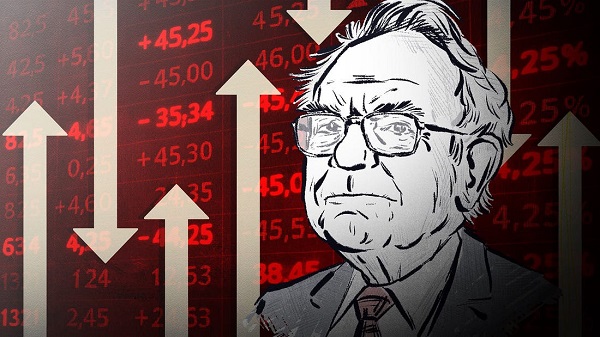
 Business2 days ago
Business2 days agoThe Oracle of Omaha Calls it a Career
-
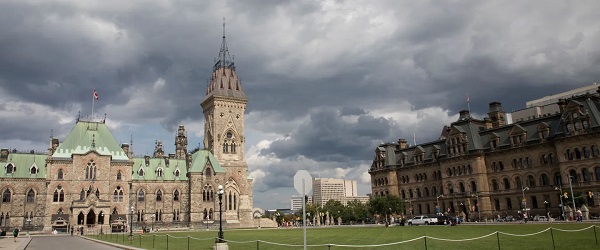
 Business1 day ago
Business1 day agoCarney’s cabinet likely means more of the same on energy and climate



